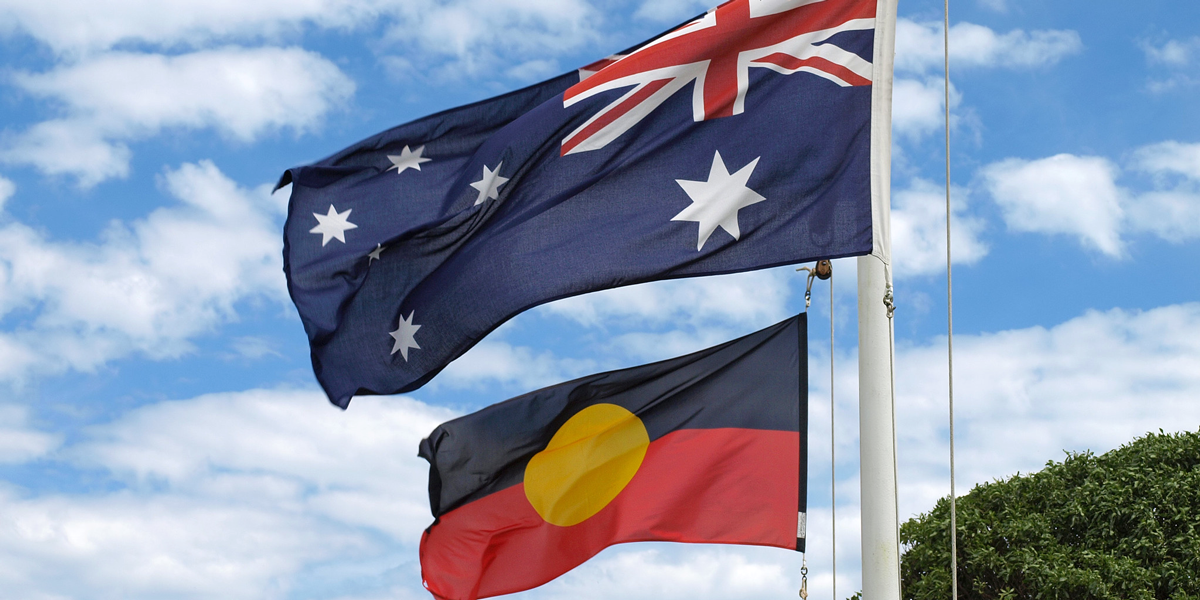
The Constitution is incomplete. So let’s finish the job
Opinion + AnalysisPolitics + Human Rights
BY Simon Longstaff 17 FEB 2023
On July 9, 1900, Royal Assent was given to the Commonwealth of Australia Constitution Act 1900. This act made provision for a series of sovereign colonial states to come together and form “one indissoluble federal commonwealth”. Section 6 of the act defines the states. It lists by name an initial seven colonies – and allows for others to be admitted at a later time.
“Hang on,” you might object, “everyone knows that there were, and are, only six states. What’s this nonsense about there being a seventh?”
Well, the framers of the Constitution wanted to recognise all of the smaller sovereign states that might make up the larger whole. So, the list included New Zealand. Indeed, when in 1902 the Commonwealth Parliament determined who could vote in federal elections, it singled out New Zealand’s Maori people for inclusion – while excluding the vast majority of Australia’s own Indigenous peoples.
This is breathtaking.
If you are wondering what any of this has to do with the proposed referendum about the Voice to Parliament, then consider this.
Those who put together the Constitution never finished the job. They left out those with the greatest claim to sovereignty of all.
Now we have the chance to finish the job – to make our Constitution whole.
We are on the cusp of resolving one of the most profound questions we face as citizens: will we afford constitutional recognition to the descendants of those First Nations peoples whose sovereignty was ignored by the European colonists?
A number of arguments have been put forward as reasons to oppose constitutional recognition of First Nations peoples in the form of a Voice to Parliament. Those arguments include that a Voice:
- Weakens First Nations’ claims to sovereignty.
- Will not lead to a tangible improvement in the lives of Indigenous peoples.
- Is “racist” and undemocratic in that it affords a privilege to one “race” over all others.
- Will increase legal uncertainty – especially when interpreting the Constitution.
In every case, framing the debate in terms of sovereignty helps us to see why these objections, while sincerely made, are not well founded.
It is feared, by some, that constitutional recognition will weaken the claims to sovereignty made by First Nations peoples. However, the Australian Constitution specifically preserves the sovereignty of each of the states that were recognised at Federation. Furthermore, all of their state laws remain intact. The only effect of the Constitution is to render state laws inoperative to the extent that they are inconsistent with valid Commonwealth legislation. Rather than destroying sovereignty, the Constitution recognises and preserves it – even as earlier laws become attenuated.
It might be objected that the First Nations of pre-colonial Australia were not “sovereign states”. However, they meet all of the accepted criteria. They may have been small – but size of territory or population does not matter (think of Monaco, Liechtenstein, Tuvalu and so on – all states). The First Nations had clearly defined borders. They had distinct laws – and processes for their enforcement. They traded – domestically and internationally (for example, centuries of trade between the Makassan people of modern Indonesia and the Anindilyakwa people of the Groote Eylandt archipelago, and others). They fought wars over people and resources and to defend their territory. All of this was anticipated by British law and policy. It was only blind ignorance and prejudice that stopped the colonists recognising the sophisticated array of states they encountered here.
A second objection is that constitutional recognition will do little or nothing to “close the gap”. Surely, Indigenous peoples have a far better idea of what is needed to address the enduring legacies of colonisation than do the rest of us. Certainly, they could not do a worse job than we have so far. So, I believe a Voice to Parliament will make a positive difference in the material circumstances of First Nations peoples. However, while important, this misses the point.
Imagine someone heading out into remote Queensland in 1899 – to tell the people living there that remaining as a crown colony might lead to better outcomes in the future. There would have been a riot in response to the suggestion that Queensland should be left a colony while the rest of the colonial states formed a federation. Even the West Australians decided to join – not because Federation guaranteed a better outcome for the people of each state, but because of the dignity it conferred on citizens of the newly established nation. It’s the same for those forgotten or ignored when the first round of Constitutional crafting was done.
The next “bad” argument claims that the creation of a Voice confers a benefit on one group of people because of their “race” – and that to do so is racist and undemocratic. Once again, the argument fails to take account of First Nations peoples as members of sovereign states. Those states existed – certainly in Natural Law (and probably more formally) for centuries prior to colonisation. The citizens of those states were exclusively Indigenous – not as a matter of racial policy but as a simple fact of history. The same would have been true of other ancient states in other parts of the world which, at one time or another, would have been made up of groups of people related through kinship and so on.
So, if we see our late recognition of the peoples of the First Nations through the lens of sovereignty and citizenship, there is necessarily going to be overlap between that citizenship and membership of a distinct group of related people.
This is not about privileging one “race” over another. It is simply acknowledging the fact that the citizens of the First Nations that we hope to recognise are all bound by a kinship grounded in deep history.
Finally, we come to the argument that an amendment to the Constitution will cause legal uncertainty – with the High Court spending wasted hours in interpreting the new provisions of an amended Constitution. If this is a valid reason for not amending the Constitution, then it is better that we should not have had a Constitution at all. Every clause in the Constitution of 1900 is open to interpretation by the High Court. Indeed, the High Court has spent a vast amount of time interpreting provisions (especially concerning the valid powers of the commonwealth). So, yes, an amendment might lead to disputes in the Federal and High Court. So what? That happens every day in relation to sections of the Constitution that are more or less taken for granted.
Finally, I am happy to see a decreasing number of people are arguing that the voice will be a “third chamber” of parliament. It will not. The Voice will be able to make representations and to advise – using whatever mechanisms the Commonwealth Parliament prescribes. The Voice will decide nothing on its own. It cannot veto any act of parliament or decision of government.
First Nations peoples have asked for something very modest. They want to be recognised. They simply want to be heard in relation to matters that have a direct bearing on their lives.
Our Constitution is a pretty good document. However, its authors left something out. While recognising the sovereignty of all others (even Fiji was in the mix for a while), they overlooked those with the best claim of all.
Imagine a fence made without a gate, a car without brakes and a cake without icing. They’ll work well enough. But they’re not complete. That’s the deficiency in our Constitution – it also works well enough, but it is not complete.
Let’s recognise what was forgotten. Let’s finish the job.
This article was first published in The Australian.
For everything you need to know about the Voice to Parliament visit here.
Ethics in your inbox.
Get the latest inspiration, intelligence, events & more.
By signing up you agree to our privacy policy
You might be interested in…
Opinion + Analysis
Politics + Human Rights
The ethical price of political solidarity
Opinion + Analysis
Politics + Human Rights
If politicians can’t call out corruption, the virus has infected the entire body politic
Opinion + Analysis
Politics + Human Rights
Why Anzac Day’s soft power is so important to social cohesion
Explainer
Politics + Human Rights, Relationships




